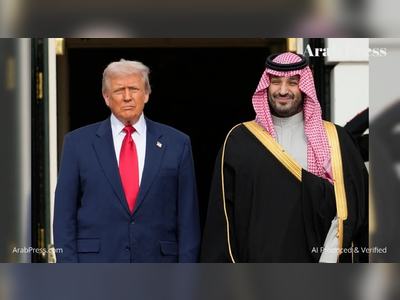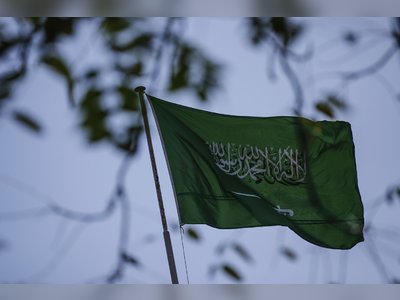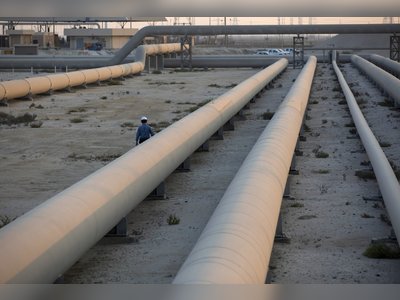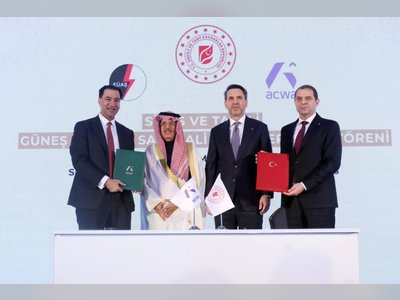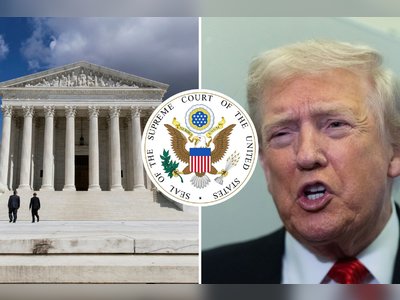
Caribbean, Latin America kids missing more school than anywhere else in globe- UNICEF
It has now been nearly a year since 4-year-old Sebastián García stepped into a classroom.
When the pandemic forced schools in Colombia’s capital to close last March, his kindergarten teacher tried to keep up with lessons through a once-a-week phone call. Later, the school began offering instruction through Zoom. But for the last two months, his mother has heard nothing from the school.
“The teacher told me to check periodically when the school was reopening,” said his mother, Lorena Mora, a manicurist living in Bogota. “But I haven’t heard anything up until today.”
A new study released Wednesday by UNICEF concludes what many in Latin America and the Caribbean have suspected: Children in the region have lost out on more schooling during the pandemic than any other area across the globe. In all, almost 60% of children worldwide who have lost an entire year of school are in Latin America. On average, schools in the region have been fully closed for 158 days.
“Children here have been out of the classroom longer than any other child in the world,” said Jean Gough, UNICEF’s regional director for Latin America and the Caribbean. “In many parts of the world, schools are the first to reopen and the last to close. But in Latin America and the Caribbean, schools are often the last to open and the first to close”.
The impact could be felt for years to come, the U.N. agency warns, noting that keeping schools closed can have devastating consequences not just in children’s learning, but also in developing social skills, overall wellbeing, and psycho-emotional development. The most disadvantaged - those with no access to online learning - are at a higher risk of never returning to school and entering the workforce instead.
“When schools are not open, children cannot develop transferable skills, such as the ability to work in a team, to communicate, to have empathy, to respect diversity and other key skills for active citizenship,” said Margarete Sachs-Israel, regional education advisor for UNICEF.
María Fuentes, a child psychologist at a primary school in Mexico City, has seen first hand how the reliance on online learning is impacting young children. Mexico has the fourth highest total number of COVID-19 numbers in Latin America, according to John Hopkins University. The Secretary of Public Education launched a distance education program during the pandemic that offers educational content on television certain days of the week.
“Unfortunately there is an increase in anxiety and stress levels in children,” Fuentes said. “We have little kids with difficulties expressing and managing their emotions in a functional way.”
In schools that have begun reopening, educators say they are already seeing the impact of a year away from class. Sara Fonseca, a preschool teacher based in Bogota, says being at home shielded many children from developing skills like independent decision-making and learning how to treat others.
“Socialization has become very difficult for the children,” she said. “Homes are generally more controlled environments because they have their parents close by and interact with very few people.”
Several studies indicate the pandemic has also deepened already steep levels of inequality in education. Children from lower-income families are often unable to access remote learning and public schools do not have the infrastructure and resources to reopen immediately in a safe way.
In Latin America and the Caribbean, schools are also often the place where children have access to their most nutritious meals. The school where Mora’s son used to attend classes sent them a small bag of groceries once a month to compensate for the meals he was not getting at school last year.
“It included one pound of rice, grains, powder milk, oil, pasta, eggs,” Mora said. “But this was last year. Since we have had no notice of the school’s reopening, we have not gotten the groceries in 2021.”
Sachs-Israel estimates there are 85 million children that do not have access to school and might be at risk for malnutrition. But there are other risks children in the region face. Another U.N. study found that more than 300,000 children and adolescents in the region could be forced to work.
“We know from other crises, like Ebola, that there’s a high risk of students dropping out,” she said. “Our projections show there is a risk of 3.1 million students dropping out permanently in Latin America and the Caribbean.”
Latin America and the Caribbean is known to be the most unequal region in the world along with Sub-Saharan Africa. The pandemic has further deepened these gaps. According to UNICEF, children from indigenous groups, those with disabilities, kids from remote areas, poor families, and girls are at a higher risk. Girls are also at risk of becoming victims of sexual abuse, a problem that has already increased and will further increase the longer schools are closed.
UNICEF acknowledged the decision and efforts made by several governments in Latin America and the Caribbean to the reopening of schools. Countries like Uruguay, which had gradual reopenings last year, starting with rural schools and ending with schools in Montevideo, could set an example of proper procedure in the region, the U.N. said. UNICEF is calling on other governments in the region to prioritize reopening.
Bogota’s mayor announced in February that schools 400 public schools in the city would reopen by April.
“This is a return to a new school,” Mayor Claudia Lopez said, describing safety precuations like mask wearing, hand washing stations and social distancing that will be employed. “A better school.”
In the meantime, Lorena Mora and young Sebastián wait to hear back from their kindergarten. Sebastián plays at home where he is taken care of by his grandmother and a trustworthy neighbor.
“I don’t know if I should start looking for another school,” Mora said. “Because it’s been two months without any news.”
“The teacher told me to check periodically when the school was reopening,” said his mother, Lorena Mora, a manicurist living in Bogota. “But I haven’t heard anything up until today.”
A new study released Wednesday by UNICEF concludes what many in Latin America and the Caribbean have suspected: Children in the region have lost out on more schooling during the pandemic than any other area across the globe. In all, almost 60% of children worldwide who have lost an entire year of school are in Latin America. On average, schools in the region have been fully closed for 158 days.
“Children here have been out of the classroom longer than any other child in the world,” said Jean Gough, UNICEF’s regional director for Latin America and the Caribbean. “In many parts of the world, schools are the first to reopen and the last to close. But in Latin America and the Caribbean, schools are often the last to open and the first to close”.
The impact could be felt for years to come, the U.N. agency warns, noting that keeping schools closed can have devastating consequences not just in children’s learning, but also in developing social skills, overall wellbeing, and psycho-emotional development. The most disadvantaged - those with no access to online learning - are at a higher risk of never returning to school and entering the workforce instead.
“When schools are not open, children cannot develop transferable skills, such as the ability to work in a team, to communicate, to have empathy, to respect diversity and other key skills for active citizenship,” said Margarete Sachs-Israel, regional education advisor for UNICEF.
María Fuentes, a child psychologist at a primary school in Mexico City, has seen first hand how the reliance on online learning is impacting young children. Mexico has the fourth highest total number of COVID-19 numbers in Latin America, according to John Hopkins University. The Secretary of Public Education launched a distance education program during the pandemic that offers educational content on television certain days of the week.
“Unfortunately there is an increase in anxiety and stress levels in children,” Fuentes said. “We have little kids with difficulties expressing and managing their emotions in a functional way.”
In schools that have begun reopening, educators say they are already seeing the impact of a year away from class. Sara Fonseca, a preschool teacher based in Bogota, says being at home shielded many children from developing skills like independent decision-making and learning how to treat others.
“Socialization has become very difficult for the children,” she said. “Homes are generally more controlled environments because they have their parents close by and interact with very few people.”
Several studies indicate the pandemic has also deepened already steep levels of inequality in education. Children from lower-income families are often unable to access remote learning and public schools do not have the infrastructure and resources to reopen immediately in a safe way.
In Latin America and the Caribbean, schools are also often the place where children have access to their most nutritious meals. The school where Mora’s son used to attend classes sent them a small bag of groceries once a month to compensate for the meals he was not getting at school last year.
“It included one pound of rice, grains, powder milk, oil, pasta, eggs,” Mora said. “But this was last year. Since we have had no notice of the school’s reopening, we have not gotten the groceries in 2021.”
Sachs-Israel estimates there are 85 million children that do not have access to school and might be at risk for malnutrition. But there are other risks children in the region face. Another U.N. study found that more than 300,000 children and adolescents in the region could be forced to work.
“We know from other crises, like Ebola, that there’s a high risk of students dropping out,” she said. “Our projections show there is a risk of 3.1 million students dropping out permanently in Latin America and the Caribbean.”
Latin America and the Caribbean is known to be the most unequal region in the world along with Sub-Saharan Africa. The pandemic has further deepened these gaps. According to UNICEF, children from indigenous groups, those with disabilities, kids from remote areas, poor families, and girls are at a higher risk. Girls are also at risk of becoming victims of sexual abuse, a problem that has already increased and will further increase the longer schools are closed.
UNICEF acknowledged the decision and efforts made by several governments in Latin America and the Caribbean to the reopening of schools. Countries like Uruguay, which had gradual reopenings last year, starting with rural schools and ending with schools in Montevideo, could set an example of proper procedure in the region, the U.N. said. UNICEF is calling on other governments in the region to prioritize reopening.
Bogota’s mayor announced in February that schools 400 public schools in the city would reopen by April.
“This is a return to a new school,” Mayor Claudia Lopez said, describing safety precuations like mask wearing, hand washing stations and social distancing that will be employed. “A better school.”
In the meantime, Lorena Mora and young Sebastián wait to hear back from their kindergarten. Sebastián plays at home where he is taken care of by his grandmother and a trustworthy neighbor.
“I don’t know if I should start looking for another school,” Mora said. “Because it’s been two months without any news.”
